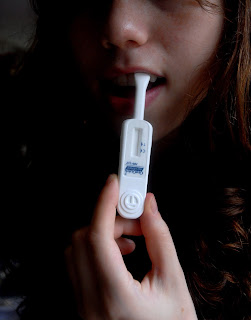HIV self tests (HIVST) have
the potential to increase testing among young adults. However, little is known
about high-risk young adults' perception of the HIVST as a risk reduction tool
and how they would use the HIVST in their everyday lives.
Our study sought to
examine these factors. Twenty-one ethnically diverse participants (ages 18-24)
used the HIVST at our study site, completed surveys, and underwent an in-depth
interview. Descriptive statistics were used to analyze the survey responses,
and interview data were coded using constructs from the
information-motivation-behavioral skills model. Information deficits included:
how to use the HIVST and the "window period" for sero-conversion.
Motivations supporting HIVST use included:
- not needing to visit the clinic,
- fast results,
- easy access, and
- use in non-monogamous relationships.
- coping with a positive test,
- handling partner violence after a positive test, and
- accessing HIV services.
Purchase full article at: http://goo.gl/hDsBji
By:
- 1HIV Center for Clinical and Behavioral Studies, New York State Psychiatric Institute and Columbia University, New York, USA.
- 2Biomedical Informatics, College of Physicians and Surgeons, Columbia University, New York, USA.
- 3Psychiatry, Mailman School of Public Health, Columbia University, New York, USA.
- 4School of Nursing, Columbia University, 617 West 168th Street, New York, NY, 10023, USA.
- 5School of Nursing, Columbia University, 617 West 168th Street, New York, NY, 10023, USA. rb897@columbia.edu.
More at: https://twitter.com/hiv insight


No comments:
Post a Comment